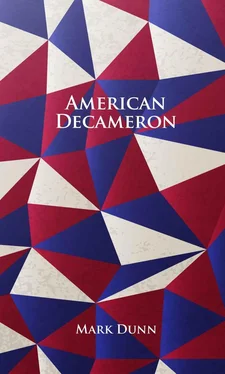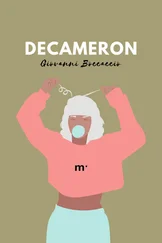As the four of us sat listening to Rouvaun singing the hopeful “Somewhere” from West Side Story while a bevy of sequined, extravagantly fledged showgirls strutted and dipped behind him, Jed leaned across his mother to whisper into my ear, “Peace and quiet and open air wait for us…on the Montana plains.” A moment later, Babs, who had imbibed one too many Blue Hawaiis, summoned the attention of one of the dancers on the stage, whose name she told us was Siam Pam. According to Babs, Pam had once worked with Babs’s mother at one of the Mercury Street bordellos in Butte. “It’s a small world after all,” marveled Babs.
The next morning over breakfast, Lorna and I tried one last time to talk Jed out of putting all twenty thousand dollars down on either red or black at the roulette wheel. We also appealed to Babs, but she was no help. Her head was killing her and even though she admitted that of course she didn’t want her husband to do such a foolish thing, he had his heart set on it and she loved Jed more than she loved money, and by the way, had we decided yet whether he should go for red or black?
“Why should we be the ones to make that decision, dear?” asked Lorna of her son. “That would be a lot of guilt for us to have to carry around if we happened to choose wrong.”
“Still,” said Jed, “I trust the two of you more than anybody.”
“That doesn’t make any sense, Jed,” I replied in exasperation. “It’s all chance, whether I’m picking the color or you are. Life may be a series of choices — choices based on knowledge or experience or skill — but life is also made up of a number of haphazard events over which a person has absolutely no control. Zero. Zilch. This is such an event. Boom or bust doesn’t apply here.”
Jed thought about this for a moment, and then he said, “I understand. I’ll just have to ask somebody else. I’ll ask a bunch of somebody elses. Excuse me. I’m going over to Caesars Palace and stand by the big fountains and pose my question to folks who walk by.”
This he actually did. He reported back that afternoon that twenty-three people had said “red” and twenty-five people had said “black.” He discounted three of the people who had said black since they were, racially, black, and obviously exercising a prideful ethnic bias. He discounted another man who said “black” when he admitted that “red” to him carried Communist undertones. A different man, the professorial type, corrected the question: “You mean The Red and the Black . Stendhal’s 1830 psychological classic. An excellent read, my boy.” This man’s companion was equally unhelpful; his answer to the question “Red or black?” was “Red when I play checkers, but I do like my coffee black.” The final adjusted count was Red: 23, Black: 21. Red it was.
At first I was torn. I wanted to be there to support Jed, but I knew that it would probably end up being the most difficult couple of minutes of my life. Lorna couldn’t bear it. Neither could Babs. They escaped that evening to Sultan’s Table to hear Arturo Romero and his Magic Violins. I couldn’t leave Jed to face this life-altering event alone, so the decision was made for me.
We approached the table. There were a couple of busty blondes there who were all smiles and apparently doing well, and a glabrous-globed older gentleman who looked choleric and probably wasn’t doing well at all. I told the croupier what my stepson wanted to do. The man summoned the pit boss and the two spoke for a moment with backs turned. The pit boss ended up shrugging. Looking right at Jed, he said, “It’s his money.” But I could have sworn that he said, “It’s his funeral .”
I had every intention of trying one last time to talk Jed out of it, but I couldn’t muster the energy. Every muscle of my body ached from having tightened up so tensely in anticipation of this moment I had been dreading.
Jed paid for his chips. The audacity of the several towering piles in front of him drew in a small crowd. The two blond women looked intrigued, almost aroused.
The croupier called for bets. Jed pushed all of the chips over to red.
A wise guy behind us cracked, “I would have gone for black.”
I wanted to slug him. If only I’d been ten years younger…
The roulette wheel began to spin, the ball deposited. “No more bets,” said the croupier. Everyone leaned in. Everyone stopped breathing. The clockwise spinning of the roulette wheel, the counter-clockwise circling of the ball — it seemed to go on forever. And then the ball began its skip and skitter among the number slots as the wheel slowed, finally settling into its final numerical resting place. The number wasn’t red. The number wasn’t black. It was green. A zero. Zero was the house’s number — one of the two numbers (the other, the double zero) that helped the casino to make a profit in this game of otherwise pure chance. It was easy to calculate the payout that Jed would have received had he put all his chips on the house’s zero rather than red: seven hundred thousand dollars. Enough to buy several Montana ranches in 1967. But I would have blown up the building before allowing him to put all of that money on a thirty-five-to-one shot.
What did my stepson do in that next moment? He smiled, he shrugged, and then he said, “That’s what you call a bust, Pops.”
Several months later, Robert — otherwise known as Evel — Knievel, of Butte, Montana, played even longer odds when he convinced the CEO of Caesars Palace to let him (at the time only a semi-famous daredevil) jump over the casino’s fountains with his motorcycle. Knievel came up short, lost control of his bike, and ended up with a crushed pelvis and femur, several fractures, and a concussion that kept him comatose for almost a month.
Nor was the “Vocal Vesuvius” immune to the vagaries of boom and bust, although his bust was of the permanent variety. After an eight-year career as a popular vocalist and recording artist, Rouvaun, a.k.a. Jimmy Haun of Bingham, Utah, erstwhile boomtown, now vacated ghost town, died suddenly in 1975 of a rupture to the esophagus from all the strain he’d been placing on his Vesuvian vocal cords.
My stepson Jed and his wife Babs won the California SuperLotto in 1993 (boom!) after years of struggling to come back from the Dunes Casino loss. The lottery, which has much in common with the casino game Keno (which was born in Butte, Montana’s Chinatown), awarded the couple enough money to share a little with Jed’s aging parents (such a good boy) and to pay for a trip to Las Vegas, where Jed and Babs and their adopted daughter Tian planned to stay at the famed Dunes Casino hotel (for old times’ sake). Unfortunately, the casino, having been out-razzle-dazzled by the bigger, better-capitalized newer generation of casinos, was due for demolition on the weekend of their visit. They stayed at Treasure Island instead, and, along with two hundred thousand other spectators (who were there for the biggest show the Dunes had ever put on), watched with wide-eyed wonder the deliberate imploding of the casino that had taken twenty thousand hard-earned dollars from them back in 1967. There were fireworks and “cannon blasts” from Treasure Island’s pirate ship, and then the Dunes’ North Tower came down in fittingly dramatic fashion.
Jed held his wife tightly around the waist as the crowd gasped and squealed and hooted with delight and Tian covered her tender teeny-bopper ears. Then Jed smiled at a thought which he later shared with his grizzled old man — the stepdad label having long been replaced by dad-in-full: “The Dunes was the first casino on the strip to offer showgirl tits (literal bust). And when it went out, it went out with a big ol’ bang (literal boom)!”
Читать дальше












